Don't miss our updates


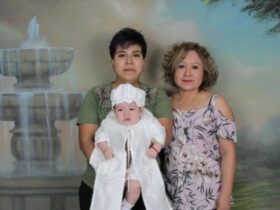
Guadalupe utilizó el método ROPA para quedar embarazada y ser madre de Matías junto a su esposa. Un bebé de ambas, conoce su historia aquí.
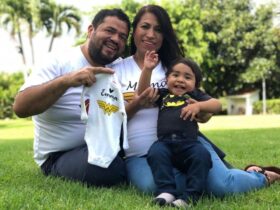
Silvia fue mamá después de los 40 años con una Fecundación In Vitro, pero la gran sorpresa fue que año y medio después se embarazó de nuevo sin ayuda.
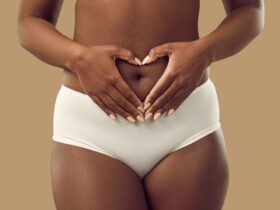
Low ovarian reserve is a condition that significantly affects a woman’s reproductive capacity, defined by a reduced number of eggs in the ovaries, as well as a decreased quality of these same eggs. Although this situation is more frequently observed in women over 35 years of age, genetic and environmental factors and certain medical conditions can cause younger women also to face this challenge. Importance of ovarian reserve Ovarian reserve is one of the fundamental factors to evaluate female fertility. An optimal ovarian reserve not only implies a greater number of eggs available for conception but is also indicative of better quality. In contrast, low ovarian reserve can pose considerable challenges in achieving pregnancy, either naturally or through reproductive assist techniques such as in vitro fertilization (IVF). Causes of low ovarian reserve Several conditions can contribute to low ovarian reserve, including: Diagnosis of low ovarian reserve The diagnosis of low ovarian reserve is made through several methods: Impact on fertility and treatment options Despite the challenges of low ovarian reserve, there are several treatment options available to help women achieve pregnancy. These options may include: Emotional support and future considerations Coping with low ovarian reserve can be emotionally challenging. It is important to seek emotional support through counseling or support groups. Education and guidance from a fertility specialist are also key to navigating this path. In conclusion, although low ovarian reserve can represent an obstacle on the path to conception, early diagnosis and appropriate treatment can significantly increase the chances of successful pregnancy. Women who wish to conceive must consult with a fertility specialist to evaluate their ovarian reserve and explore the most appropriate treatment options for their particular situation. Low ovarian reserve is a condition with a significant impact on fertility, but there are hope and options available. With the right advice and appropriate treatments, many women with low ovarian reserve can fulfill their dream of becoming mothers. If you are facing fertility challenges and are concerned about your ovarian reserve, we invite you to contact us. Our team of specialists is ready to offer you the guidance, support, and treatment options you need to move towards your goal of starting a family.
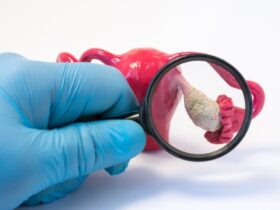
Una reserva ovárica baja puede comprometer tus probabilidades de tener un bebé. Te decimos cómo conocer la tuya y tus opciones para ser mamá.
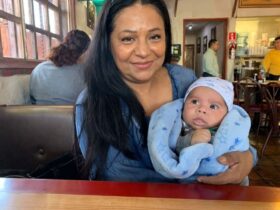
Getting pregnant after 35? Not deciding early enough to want to have children could cause you to lose the power of choice. If you knew that in two years’ time your chances of becoming a mother would be considerably reduced, would you change the way you are planning the course of your life? “I am 40 years old and it would have changed my life if someone had told me about infertility 20 years ago. Planning your childbearing doesn’t just mean deciding not to have children when you don’t want them, it also means being able to have them when you do. Luciana Mantero, writer, journalist and mother after the age of 35. So begins the TEDx Talk of the writer and journalist Luciana Mantero, who at the age of 33 found out that she had an early menopause . Due to her condition, she had to seek help to start a family through Assisted Reproduction treatments. On the road to having her baby, she discovered the opportunity to help other couples going through the same situation. Time is fertility’s worst enemy “What if I told you that in two years you would lose the opportunity to have children? Would you change your life plans?” asks Luciana. “If all of you were of reproductive age, 2,000 of you would have trouble having a child in the future, without knowing it today.” The good news is that Luciana is merely highlighting a hypothetical situation. The bad news is that, because there is no precise date when the opportunity to become a parent is completely lost, many people do not realise this until it is too late. Pregnancy after 35: the biological clock versus current cultural trends A woman in her 30s has a 20% chance of becoming pregnant with each cycle of unprotected sex. At 40, this probability drops to 5%, with an increased risk of miscarriage and genetic alterations that could cause her baby to manifest conditions such as Down’s Syndrome, compromising her quality of life. In the modern era, men and women are increasingly having trouble getting pregnant and having a baby. Difficulty in having children is a silent epidemic for which almost no one is prepared. Latin America experiences fertility decline According to data from Economic Commission for Latin America and the Caribbean (ECLAC), Latin America presents an accelerated fertility decline and fertility problems associated with delayed childbearing, which contrast with high rates of teenage pregnancy. This is a global issue that has been widely studied in recent years, largely due to the ageing of the world’s population. The biological clock is on one side and cultural trends on the other. Getting pregnant at 35, 37, 39, 41, 43, 45, 47…. “When I was 29, the idea of having a child came into my head,” explains Luciana. “I wasn’t entirely sure it was the right time, but we started trying anyway. It didn’t take long for me to get pregnant. Three years after my first child, Lucas, was born, and having experienced the wonders of motherhood, we decided to try for a second child. I was 33 when I was diagnosed with early menopause”. For Luciana, the diagnosis of early menopause was unexpected. According to her testimony, she was told by seven different doctors that it was impossible to get pregnant with her own eggs . Her options were adoption or egg donation. According to these doctors, her ovarian reserve was simply “too old”. “For two years, my routine consisted of having a blood test every day, plus dozens of transvaginal ultrasounds to monitor my ovulation. I went to a clinic for a hysterosalpingogram. Luciana Mantero, writer, journalist and mother after the age of 35. After all the physical wear and tear, Luciana sought spiritual relief and took a breather before continuing on her way. “I come from an atheist family, but even so, I went to the Virgen del Cerro to pray for another son,” she continues. “After a period of great mourning, I accepted that there was another way to a happy ending with the right tools and support. We took the path of ovodonation”. Pregnancy after 35: experience and opportunity Luciana wrote a book detailing her story and that of nine other women. Along her journey, she met hundreds of people from her native Argentina, men and women who were going through the same things she was. Luciana says the stories keep coming back to her, just as her second son, Joaquin, came back to her. “Do you know how you were conceived? Do you know if your parents had fertility problems or underwent treatment? Assisted Reproduction opportunities for pregnancy after 35 years of age Thanks to scientific advances, there are now a wide variety of alternatives for having a successful pregnancy after the age of 35 and ending with a baby at home. If you are planning a pregnancy there is even the possibility of freezing your eggs. Ideally, this should be done before the age of 30. After 30, the quality and quantity of eggs gradually decreases as time goes by. Many of us would like to believe that we live outside statistics, but of course, statistics are there for a reason: In Mexico, 1 in 6 people experience infertility problems. “We all feel we are outside the statistics, but the reality is that we all fit into them,” concludes Luciana. “I don’t want it to be too late for you. Don’t let your dream go unfulfilled because you didn’t decide in time”.
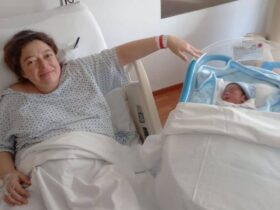
Baja reserva ovárica y FIV positiva en su tercer intento, conoce a Claudia, quien se convirtió en mamá después de varios tratamientos fallidos.
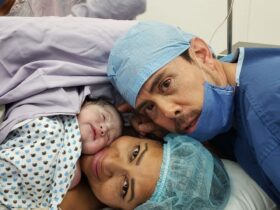
Tener un bebé por medio de una ovodonación no es una decisión sencilla y, por eso mismo, requiere que cuentes con información precisa, y que tomes un tiempo para analizar esto junto con tus deseos de maternidad. Es por eso que te compartimos la historia de Lorena, quien debido a su baja reserva ovárica, recurrió a la donación de óvulos para tener a su pequeña mediante una FIV.
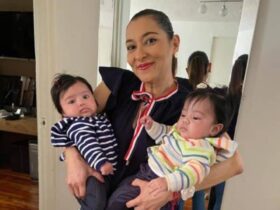
Los riesgos de tener un bebé a los 40 no deben detenerte. Inés te cuenta su historia, sus miedos y cómo logró a sus 2 pequeñas a los 46 con FIV.

Verónica tuvo a sus trillizos por Fecundación In Vitro después de 20 años intentando ser mamá, pérdidas gestacionales y una baja reserva ovárica.